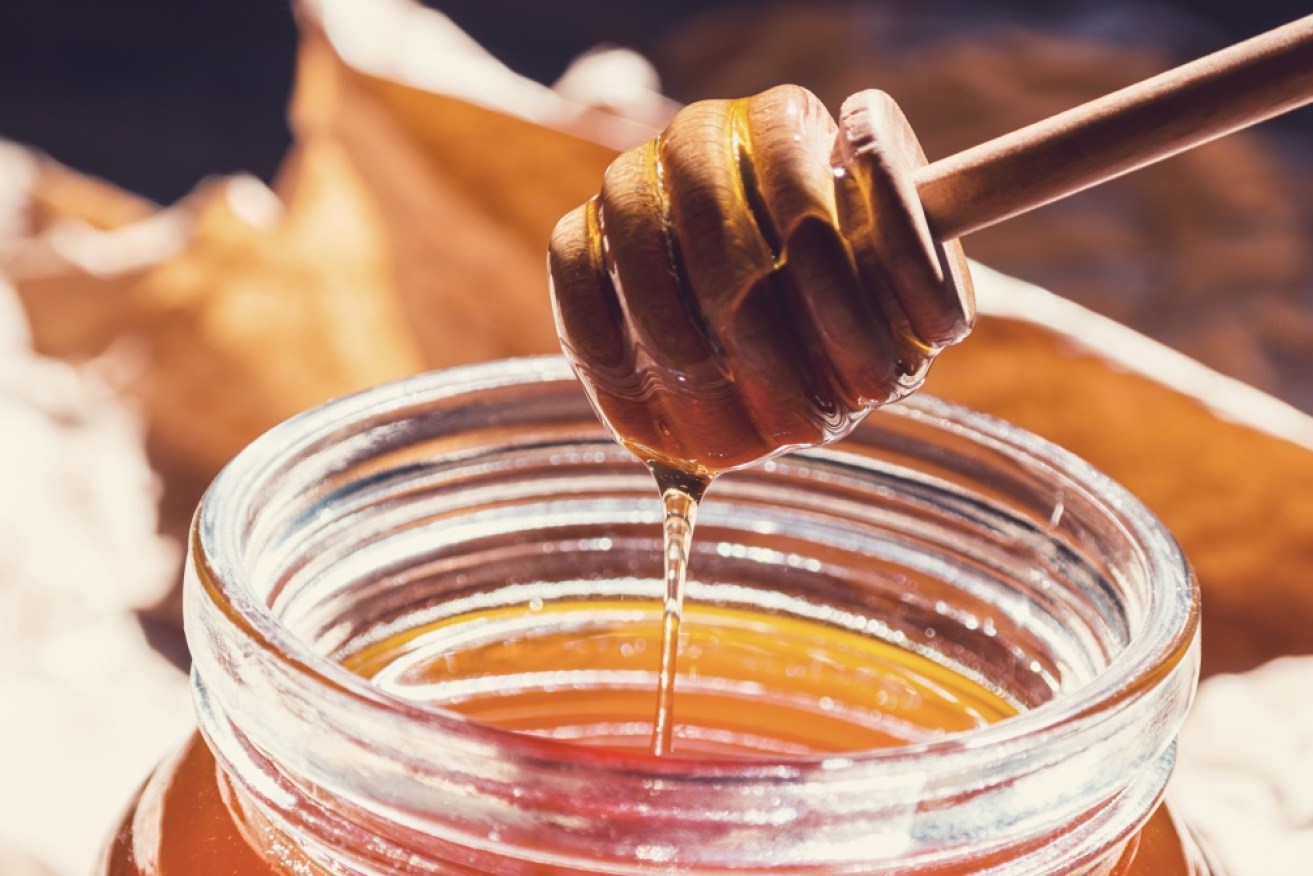Claims Australian supermarket shoppers are buying fake honey


Fake honey is not just an International problem. Photo: Getty
Australia’s largest listed honey company and some of the country’s biggest supermarket chains have been accused of unwittingly selling “fake” honey.
Testing at an international lab specialising in honey fraud detection found almost half the honey samples selected from supermarket shelves were “adulterated”, meaning it has been mixed with something other than nectar from bees, a joint ABC-Fairfax media investigation found.
The adulterated samples were all products that blend local and imported honey, the ABC reported Monday.
Capilano’s Allowrie-branded Mixed Blossom Honey, which sources honey from Australia and overseas, showed up as “adulterated” in most of the samples tested.
Capilano has strongly denied any issues with its products and criticised the test – known as Nuclear Magnetic Resolution (NMR) – saying it differed from the official Australian test.
The ABC report made no suggestion that Capilano’s brand of Australian-sourced honey had any issues, or that Capilano or other brands were aware of the adulteration.
Experts told Fairfax that adulterated honey generally included rice syrup and beet syrup, as well as other unidentified substances, which aren’t detected by official honey tests.
International fraudsters, often criminal gangs in China, produce the fake honey and sell it to unsuspecting suppliers at a higher price, making a fortune along the way, it reported.
Phil McCabe, president of the International Federation of Beekeepers’ Association (Apimondia) said that NMR testing is the most accurate available and claimed consumers are not getting what they paid for.
“Adulterated honey isn’t honey at all,” he was quoted as saying by the ABC.
“By and large [the impurity] is some kind of syrup that’s been converted to look like honey, it tastes like honey.
“Everything about it seems to be honey, when in fact it’s just sugar syrup or something else.
“Consumers don’t realise what they are buying and eating isn’t honey.”
Supermarket chain ALDI has reportedly moved to remove any affected honey products from its shelves.
Mr McCabe said he would refer the tests, commissioned by law firm King & Wood Mallesons, to Interpol for further investigation.
Germany’s Quality Services International (QSI) lab was commissioned by the law firm on behalf of horticulturalist Rob Costa to conduct two types of tests of the sampled honey.
One used NMR screening and the second used the official C4 sugar test.
The ABC-Fairfax investigation was supplied a copy of the results from Mallesons.
The law firm collected 28 blended and imported honey samples from supermarket stores around Australia.
Using the NMR testing, the ABC reported the results showed that 12 of the 28 samples were not 100 per cent pure honey.
The same 28 samples were then tested using the official Australian test, C4, and all passed.
There was no suggestion that Capilano’s Australian sourced honey had any issue.

Capilano has questioned the test’s findings. Photo: ABC
Capilano was sent a copy of the test results and vigorously denied that any of its products were not pure honey and rejected NMR testing as the best way to determine adulteration.
It told the ABC that Australian and international regulators “do not use this testing regime at all”.
Capilano said it was 100 per cent confident its Allowrie honey, which is made using up to 70 per cent imported honey, was pure.
“We are incredibly concerned that they are being used in isolation of more robust analytical testing, given this is also the opinion of the manufacturer [Bruker] and the two most reputable laboratories in the world [Intertek and QSI], one of which has conducted the NMR analysis,” Capilano said in a statement.
“Our concern lies in the use of these results to create doubt and confusion over the authenticity of honey and how that could be used to mislead the public and consumers,” it said.
Capilano said it: “stands by the quality and purity of all of our honey brands, including Allowrie which has never failed more stringent and appropriate testing by world renowned laboratories.”
Capilano says that two samples from the same batch came back with different results from the two labs using NMR.
ALDI said it would investigate the claims and if the investigations conclude that the product has been adulterated, it would permanently be removed from sale at ALDI and further actions would be taken with the supplier.
Woolworths said it treated the accuracy of product labelling very seriously.
“We will now work closely with our supplier to review the substance of the claims in detail before determining our next steps,” it was quoted as saying.
Coles said it had deleted all Allowrie products from its shelves for unrelated reasons in July after a range review.
IGA said it meets all the requirements of the Australian and New Zealand food code.
Mallesons was expected to send a copy of the test results to the Australian Competition and Consumer Commission on Monday.








